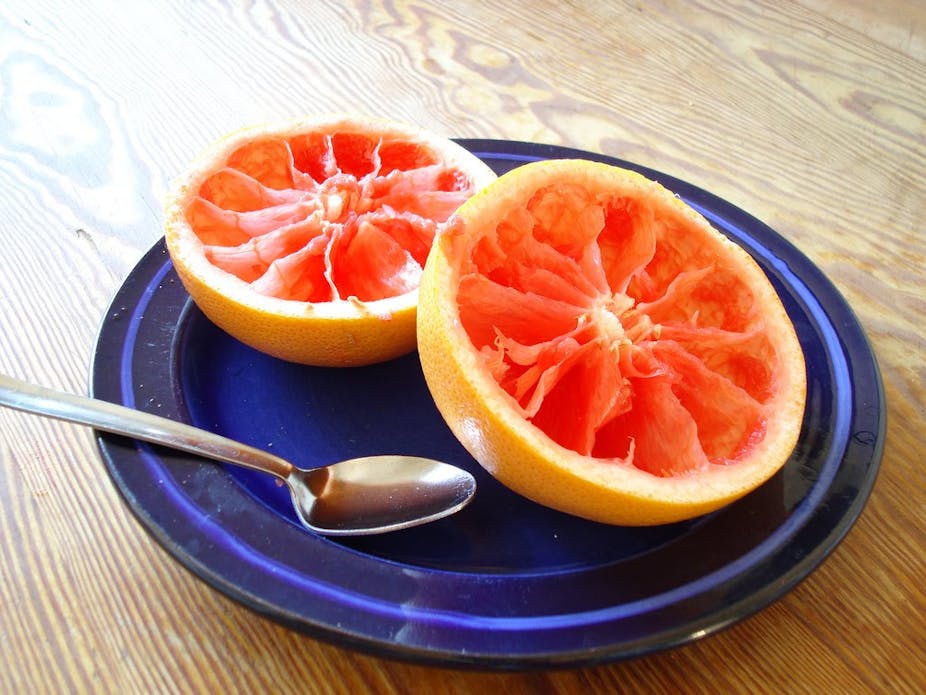People who regularly go on diets tend to lose weight initially but bounce back and even gain weight after stopping the regime. This phenomenon – dubbed yo-yo dieting – is associated with changes in metabolism and is one reason why the vast majority of calorie-based diets fail. But exactly what causes these metabolic changes has remained a mystery – until now.
Previous studies in identical twins who differed in dieting patterns have shown that non-genetic factors are largely responsible. The working hypothesis was that when you gain weight you somehow “reset” your internal thermostat corresponding to the higher weight level and so when you lose weight – your body does all it can to return to that new higher set point. Now new research, published in Nature, explains why this happens to some people more than others and, importantly, how it could be reversed.
The study, by an Israeli group of scientists, mimicked human yo-yo dieters in lab mice. The researchers fed the mice in several cycles of alternating weight gaining and losing diets. They started with big, high-fat portions to fatten them up then slimmed them down with a diet of normal, light meals, then repeated the regime. Like humans, the mice slowly gained weight compared to other mice on steady diets of similar calories – even those on continuous high-fat diets.
Mice who bounced back and had increased weight regain after dieting had a lower energy expenditure than those on steady diets but still ate the same amount of food. We know this change in body metabolism occurs in yo-yo dieters. But the new study managed to figure out why – by looking at a forgotten organ of the body.
In humans, this organ weighs nearly as much as the liver and is located in our lower intestines. It is the microbiome – the community of microbes that outnumber our cells and have a hundred-fold more genes and enzymes capable of digesting food and regulating our metabolism and immune systems. It turns out that changes to the gut microbes were responsible.

There were marked differences in the gut microbes of the yo-yo dieting mice compared to the normal ones – including a reduction in diversity, which is correlated with obesity and other metabolic problems in humans. When they transplanted these disordered microbes from the weight regainers into normal mice on normal diets they saw them gain weight – showing that the altered microbes were ultimately responsible. They could explain how the microbes caused weight gain by looking at how they digested the plant fibre – their staple diet.
The study found that the altered microbes were under-producing healthy compounds generated from the plants called polyphenols (flavonoids) in the gut after dieting. These polyphenols are key to a healthy gut and the reason why many brightly-coloured foods are gut friendly. Taking poyphenols has in fact been associated with better health and less obesity. The exciting result of this is that, because microbes are involved, the changes post-diet are potentially reversible.
Avoiding the yo-yo trap
The researchers tried a number of methods to reduce the weight gain in the yo-yo dieting mice. First, they gave them antibiotics which altered the microbes and increased polyphenol levels. This cured the problem, but isn’t exactly a practical solution for humans. They then tried fecal transplants which also worked, but are again a bit drastic in humans. As taking a tablet is safer and easier, they then tried to replace some of these specific polyphenols by supplementation in the diet. Luckily, even this could reduce the weight gain.
So what are the lessons for humans? Assuming a similar mechanism is at work in humans, which is likely, it’s pretty clear. Episodic weight loss can be metabolically dangerous – damaging your microbes and making you burn less energy. The solution – while we await some magic supplements – is looking after your microbes as you transition back onto normal foods after a diet. In particular, you need to feed them plenty of fibre and polyphenol-rich foods which, as well as the obvious fruit and veg, include nuts, seeds, olive oil (extra virgin), coffee, dark chocolate and even a glass of red wine.
The best approach if you really want to lose weight long term is to avoid crash diets and calorie counting altogether, which are doomed to fail. Instead eat real diverse food, plenty of fibre and let your microbes take care of the rest.
More on evidence-based articles about diets:

